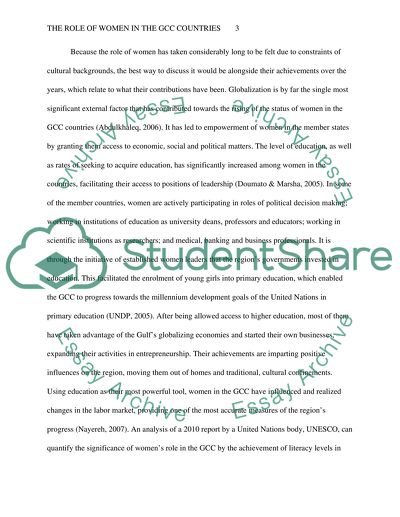Cite this document
(“The Role of Women in the GCC Countries Essay Example | Topics and Well Written Essays - 2000 words”, n.d.)
Retrieved from https://studentshare.org/sociology/1493298-the-role-of-women-in-the-gcc-countries
Retrieved from https://studentshare.org/sociology/1493298-the-role-of-women-in-the-gcc-countries
(The Role of Women in the GCC Countries Essay Example | Topics and Well Written Essays - 2000 Words)
https://studentshare.org/sociology/1493298-the-role-of-women-in-the-gcc-countries.
https://studentshare.org/sociology/1493298-the-role-of-women-in-the-gcc-countries.
“The Role of Women in the GCC Countries Essay Example | Topics and Well Written Essays - 2000 Words”, n.d. https://studentshare.org/sociology/1493298-the-role-of-women-in-the-gcc-countries.


